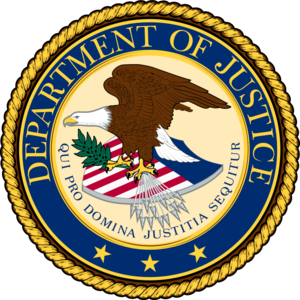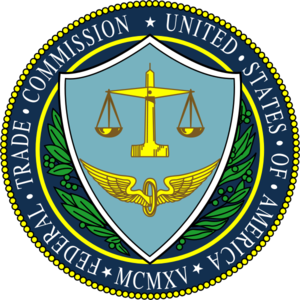Anti-trust legislation

Anti-trust legislation or competition law exists to promote and ensure the freedom and competitiveness of markets, by discouraging any practice or market structure that would reduce competition in the market.[2]

To ensure the competitiveness of a market, anti-trust legislation makes certain practices illegal. Some of these practices are price fixing, price discrimination, collusion, monopolies and mergers of certain sizes.
If two firms decide to merge into one large firm then the deal will have to meet the limits of the anti-trust legislation. If the new firm becomes too large and has market power then it would not be allowed because it would eliminate the competitiveness that existed between the two companies before the merger and decrease the overall competitiveness of the market itself.[4]
Anti-trust legation is designed to ensure fairness and efficiency in the market. Market structures such as monopolies restrict supply and raise the price of goods, without competition consumers are forced to pay these higher prices for the goods they need.
Collusion
Antitrust law seeks to discourage collusion of any sort, it can be as severe as secret deals to manipulate the market or merely discussing pricing or market strategies with competitors.[5]
The idea is that if firms compete with each other then each will raise the quality of their product and lower the price as much as possible in order to make their good or service the most appealing to consumers.
Enforcement
Each country has its own legal or administrative body that investigates and enforces their antitrust laws. Each body is empowered with a certain range of powers, the Federal Trade Commission (FTC) can act under a number of statutes such as the Clayton Act or Bankruptcy Abuse Prevention and Consumer Protection Act of 2005.[6] Likewise, in Canada, the Competition Bureau performs similar duties under similar statutes.[7]
For Further Reading
- Monopoly
- Monopsony
- Cartel
- Or explore a random page
References
- ↑ Wikimedia Commons. [Online], Available: https://commons.wikimedia.org/wiki/File:Seal_of_the_United_States_Department_of_Justice.png [Aug 20, 2016]
- ↑ J.Black, N. Hashimzade, and G. Myles. (2009) "Antitrust." [Online], Available: http://www.oxfordreference.com/view/10.1093/acref/9780199237043.001.0001/acref-9780199237043-e-88?rskey=VbbqNW&result=2, 2009 [June 28, 2016]
- ↑ Wikimedia Commons. [Online], Available: https://commons.wikimedia.org/wiki/File:US-FederalTradeCommission-Seal.svg [Aug 20, 2016]
- ↑ Investopedia. "Antitrust." [Online], Available: http://www.investopedia.com/terms/a/antitrust.asp?ad=dirN&qo=investopediaSiteSearch&qsrc=0&o=40186[June 28, 2016].
- ↑ A. Goolsbee, S. Levitt and C. Syverson. Microeconomics. New York: Worth Publishers, 2013, pp. 377.
- ↑ Federal Trade Commission. "Statutes Enforced or Administered by the Commission." [Online], Available: https://www.ftc.gov/enforcement/statutes [Aug 20, 2016]
- ↑ Competition Bureau. "Our Organization." [Online], Available: http://www.competitionbureau.gc.ca/eic/site/cb-bc.nsf/eng/h_00125.html, Nov 2015 [Aug 20, 2016]

